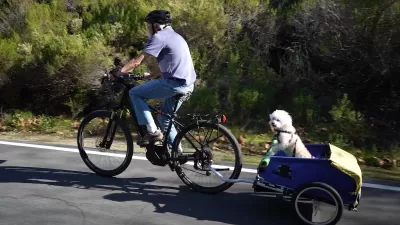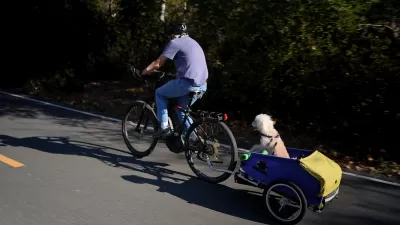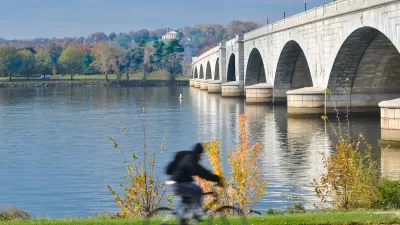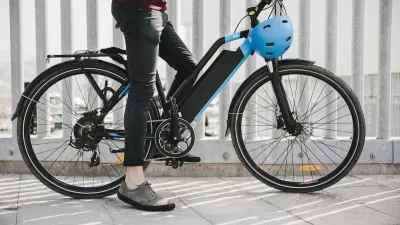The e-bike rebate program, first funded in 2021, is still a failure to launch.

California’s beleaguered e-bike incentive program is still not off the ground, writes Melanie Curry in Streetsblog California.
Curry notes that 77 vouchers have been distributed through a “soft launch,” but information about the program remains vague. According to Curry, “There is no information online about where the soft launch is happening or how people are finding out about it or which organizations are handling outreach. CARB staff have been very slow to respond to questions, and their answers have been vague and incomplete.”
Outlining the history of the program, the article highlights management and administration challenges that have delayed the program’s start. “CARB expects to give out on the order of 15,000 incentives from the initial allocation and, as far as anyone knows, still plans to do this via multiple application windows, into 2025.” The program has at least 20,000 interested parties, signaling that the rebates will likely run out quickly.
Curry concludes, “The biggest problem with this failure to launch is that even the total amount of money available is but a drop in the bucket. It will not structurally improve the affordability of e-bikes or create a huge mode shift, even if CARB were more dedicated to seeing it happen quickly.”
FULL STORY: What the Heck Is Going on with the State E-bike Incentive Program?

Study: Maui’s Plan to Convert Vacation Rentals to Long-Term Housing Could Cause Nearly $1 Billion Economic Loss
The plan would reduce visitor accommodation by 25,% resulting in 1,900 jobs lost.

North Texas Transit Leaders Tout Benefits of TOD for Growing Region
At a summit focused on transit-oriented development, policymakers discussed how North Texas’ expanded light rail system can serve as a tool for economic growth.

Why Should We Subsidize Public Transportation?
Many public transit agencies face financial stress due to rising costs, declining fare revenue, and declining subsidies. Transit advocates must provide a strong business case for increasing public transit funding.

How to Make US Trains Faster
Changes to boarding platforms and a switch to electric trains could improve U.S. passenger rail service without the added cost of high-speed rail.

Columbia’s Revitalized ‘Loop’ Is a Hub for Local Entrepreneurs
A focus on small businesses is helping a commercial corridor in Columbia, Missouri thrive.

Invasive Insect Threatens Minnesota’s Ash Forests
The Emerald Ash Borer is a rapidly spreading invasive pest threatening Minnesota’s ash trees, and homeowners are encouraged to plant diverse replacement species, avoid moving ash firewood, and monitor for signs of infestation.
Urban Design for Planners 1: Software Tools
This six-course series explores essential urban design concepts using open source software and equips planners with the tools they need to participate fully in the urban design process.
Planning for Universal Design
Learn the tools for implementing Universal Design in planning regulations.
Ascent Environmental
Borough of Carlisle
Institute for Housing and Urban Development Studies (IHS)
City of Grandview
Harvard GSD Executive Education
Toledo-Lucas County Plan Commissions
Salt Lake City
NYU Wagner Graduate School of Public Service





























